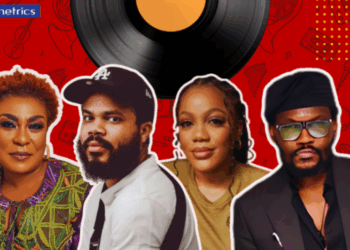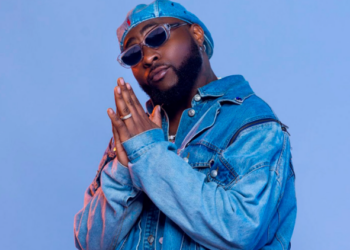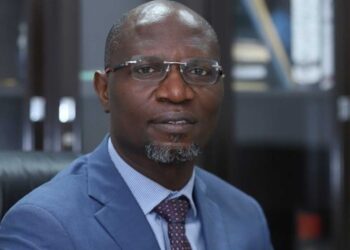Back in 2017, I shared in an article, Now is a Good Time to Invest in the Nigerian Music Industry, the increasing appetite for Nigerian Music across the world and the importance of investing in the Nigerian music industry. I predicted that there was a need to watch out for the likes of Wizkid, Davido and Burna Boy, who even at that time were already leading the charge in the Afrobeats scene.
Two years later, the update on the Nigerian music industry has become even more interesting. The likes of Wizkid, who had already penned a deal with Sony RCA back in 2017, has begun to collaborate with more A list American artists like Ty Dolla $ign, Chris Brown, Goldlink, Swae Lee, Metro Boomin, and Offset (from the Migos). Wizkid also played a huge part in the recent Lion King album by Beyoncé, which showcased and celebrated an impressive array of mind-blowing Afrobeats sound.
Davido also went ahead to do major things in the diaspora. His songs “If” and “Fall,” which were released in 2017, became very trendy amongst the American audience recently. In fact, these songs are still constantly played on U.S radio daily. Apart from these two singles, he also collaborated with foreign artists like Casanova 2x, roc-nation rapper from Brooklyn, NY and R&B crooner, Chris Brown. He was also “brought out” to perform at a recent musical outing with the rapper 50 Cent in New York.
Other Nigerian artists have not also been left out. Tiwa Savage recently inked a management deal with Jay-z’s roc nation company, Tekno has produced for the likes of Swae Lee and Drake, Mr Eazi has begun to collaborate with Latin artists like J. Balvin & Bad Bunny, and Burna Boy has signed with Atlantic Records and released two albums that has greatly boosted his reputation in the diaspora.
[READ MORE: Another Yahoo downtime breeds fear 6-years after data breach affected 3 billion accounts]
Burna Boy is one artist to watch. Through his new project, he is beginning to walk the path of the political inclination of Afrobeat Icon, Fela. In his song, “Another Story”, which he sang with Ghanaian Artist, M.ani.fest, he talked about some aspects of the history of Nigeria. One can tell that he loves his country the way Fela did use his music as a podium to fight social injustice. The insights from the song “Another Story” is a fresh perspective teaching Nigerian history to the youths, who probably missed learning about Colonialism in the classroom.
Another Story becomes almost a history of colonialism which has become lost to the youth. He has used this to pitch and show people where Nigerians have come from and where they are going. In my opinion, I believe he is going further than Fela. Fela is the dough and now Burna has put the interesting toppings on the pizza – to use his analogy of Afrobeats at his recent interview with Trevor Noah. Music that endures should not be a pleasure for pleasure sake. It should hit the human cord, the rawness of human existence – I believe Burna has discovered that this is what makes a difference and he is running with it.
For Mr. Classic Man, Jidenna, his recent album which featured a song with Mr. Eazi called “Zodi” and another song “Sufi woman” capture the Afrobeats essence. Interestingly, he forayed into Afrobeatz before this album. His 2016 song “A little Bit More” and his 2017 collaboration with Major Lazer on the song “Particula” truly represent the Afrocentric vibes that now constitute this new sound of Afrobeats – though some people are still adamant that Jidenna style of music is a watered-down Americanized version of Afrobeats.
Apart from the leading artists in the Nigerian music industry, the alternative music scene is also growing. The likes of Santi and Odunsi are the leading faces in this genre. Santi released an album earlier this year and it featured notable American artists like Goldlink and DRAM. Odunsi has also found success as well. The artist recently signed with Universal Music Group Nigeria. This followed with the success of his album “rare,” which was released in 2018.
The album featured the likes of Davido, Santi, Tay Iwar & Nasty C from South Africa. Other artists like Jinmi Abduls have also risen in the past two years. He recently released JOLAG 2 in 2018, the follow up to his JOLAG EP in 2017. Currently, he has a new song called “Greed” with fellow alternative singer, Oxlade, who in his vein has gained credibility in the scene. He was also recently in Uganda where he performed at shows and also collaborated with new artists making waves in that country.
The state of the Afrobeatz scene is looking very solid right now and it makes perfect sense for foreign companies to invest in the industry.
Price Waterhouse Coopers (PWC) in a 2016 report estimated that the Nigerian music will be worth $86 million next year. This may just be a conservative estimate as the net worth of one player Don Jazzy is well above 86 million not to mention the net worth of the top ten in this league.
The growth may be accredited to the interests of foreign labels like Sony Music Africa and Universal Music Group as well as great revenues from mobile music, which depends on ringtones and ringback tones. By 2020, PWC estimates that digital platforms will make up 90% of Nigeria’s recorded music sales.
[READ ALSO: Faltering Guinness pays bumper dividends but Diageo rakes in billions in royalties]
Nigeria should really begin to think deliberately on how to leverage music as they explore opportunities in the non- oil sector. Nigerian music can potentially be the Country’s export along with the Nigerian human capital.
The surge of the Nigerian music industry has been very impressive over the years; however, the issue of intellectual property remains a problem for artists and foreign investors, due to the constant piracy of content. The Alaba market area in Lagos is notoriously known for selling pirated albums of musicians, which in itself distorts the number of sales for an artist and infringes on copyright. There is also the challenge with the Collection regulatory environment.
In order to create further growth in the Nigerian music industry, the government can do more to encourage investments in this sector through well-thought incentives and regulatory environment that will encourage and not gag the growth of the sector. The protection and enforcement of intellectual property will further reassure current investors to expand their business and will attract new investors.
Whether the music is a soundtrack in Lion King or played endlessly on international radio stations, at clubs and parties across continents, the Nigerian Afrobeats music scene is getting increased visibility. World music is growing green and white.
[READ FURTHER: Meet the woman winning in a male-dominated paint market]
At least for the music industry …. we are in exciting times.





















